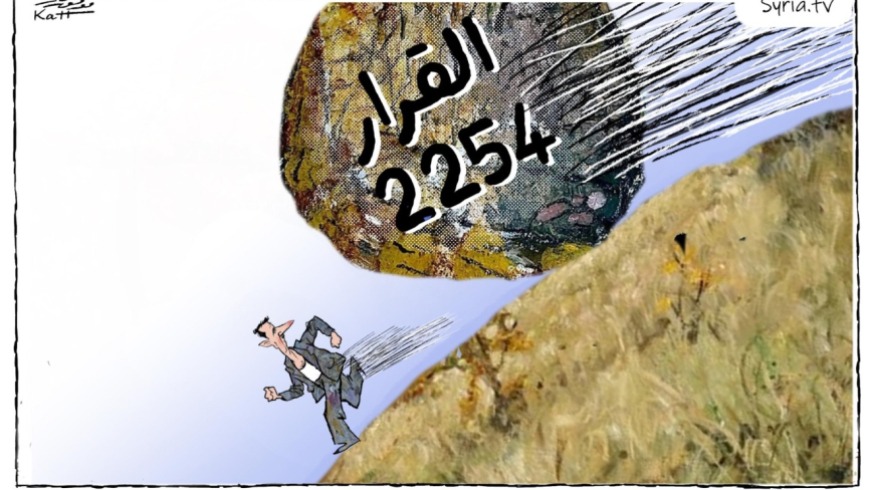The Syrian landscape has changed due to regional and international dynamics. Efforts to normalize relations between Arab regimes, Turkey, and the Assad regime have gained attention. The Russian perspective on the Middle East seems to have halted and fractured the Arab Spring, undermining the desire for change. Not all supporters of the “Friends of the Syrian People” genuinely advocated for democracy. The majority of belligerents in Syria opposed the change.
As Syrian rebels, we failed to overthrow the Assad regime and establish a legitimate political entity. The regime’s brutal violence and destructive policies prevented a political transition. The regime has been rewarded despite its violent acts.
The Assad regime’s economic ties with Iran and Russia have impeded its recovery. It may seek new opportunities with Arab countries under Chinese influence.
The current trajectory in the Middle East is causing dissatisfaction among American and European allies due to the desires of regional regimes. The Russian-Ukrainian conflict and China’s political breakthrough through Iranian-Saudi reconciliation illustrate this. Both the Western allies and regional regimes oppose Russia’s vision for a new Middle Eastern order and China’s role in enhancing security stability. This power shift from West to East, despite hindering the region’s aspirations for political liberation, has turned the Middle East into a continuous conflict zone.
The United States cannot withdraw and allow China to establish a foothold in the region, especially after China deployed warships to West Africa. Similarly, Europe cannot permit Russia to emerge victorious in the region while opposing them in Ukraine. This raises questions about new methods of warfare after traditional approaches have failed. Can the Assad regime support regional regimes and perpetuate their own model, or will it obstruct the stable system that China seeks in partnership with regional countries?
The Assad regime’s reliance on economic ties with Iran and Russia has impeded its recovery. Consequently, the regime may explore alternative paths with Arab countries under Chinese influence. However, the regime has thus far failed to meet the necessary obligations for full engagement in this new cycle. The same repressive tools used to suppress the people’s revolution prevent its integration into this trajectory, even as it becomes a de facto partner in power. The regime’s actions lack constitutional and legal legitimacy.
For example, the visit of the Jordanian Foreign Minister to Damascus on July 3, 2023, and his mention of implementing Resolution 2254 resulted in resentment from those responsible for television broadcasting, leading to the transmission being cut off. Thus, the regime does not serve as a suitable example that can be integrated into a two-dimensional system combining incentives for well-being with punitive measures. The regional system will eventually recognize the impossibility of recycling this toxic waste, although it may take time.
The impact of various tools on a regime that thrives on domestic and international illegality is significant. The Assad regime is primarily concerned with its own survival and disregards all other considerations, including its support base and the pillars that sustain its existence.
Regarding the question of whether the West can employ new tools to halt the resurgence of the Assad regime in the region, the United States and European countries do possess different tools, such as sanctions. These sanctions go beyond targeting the regime and encompass third parties engaged in economic relations with the regime in various sectors subject to sanctions. However, these sanctions can be disabled temporarily, as seen during the lifting of some sanctions after the earthquake disaster to provide relief to affected areas. Prosecutions also serve as a tool, exemplified by the Netherlands’ case at the International Court of Justice, citing violations of the Convention Against Torture, which Syria has signed. Similarly, the US has enacted laws like the Caesar and Captagon laws and aims to pass legislation criminalizing engagement with the Assad regime. International efforts to address violations in Syria include reports from the Organization for the Prohibition of Chemical Weapons, evidence collection through international mechanisms, and the establishment of independent institutions to investigate the fate of missing persons in Syria.
However, the impact of these tools on a regime addicted to domestic and international illegality remains limited. The regime’s sole focus is its own survival, disregarding all other considerations and lacking obligations even to its support base and key pillars. In reality, none of these tools are effective enough to fundamentally change the nature of the regime. The Arab initiative to implement Resolution 2254 is unlikely to succeed, and China’s efforts to pacify the region for integration into the Belt and Road project are also unlikely to be successful. Consequently, an impasse persists without a visible resolution on the horizon, unless significant events such as the fall of the Iranian regime or a coup in Russia occur, leading to the removal of powerful backers or creating a crack in the regime’s solid wall. In this context, the law falls short in achieving what politics evades, despite the range of tools available.
This article was translated and edited by The Syrian Observer. The Syrian Observer has not verified the content of this story. Responsibility for the information and views set out in this article lies entirely with the author.


